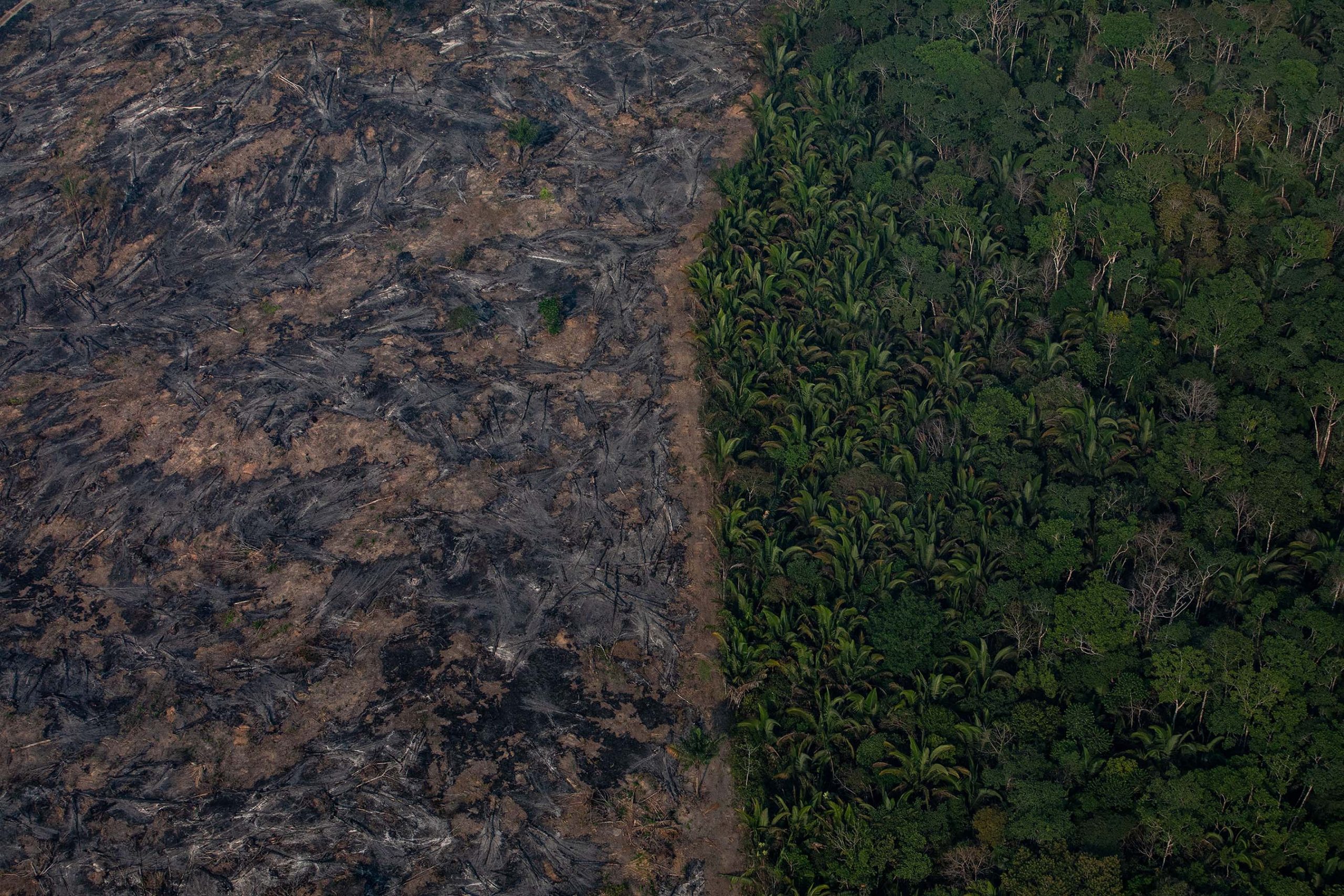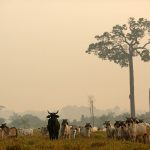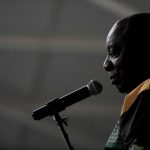Affirm the Earth as a global commons
The current environmental cataclysm is entangled in a worldwide political crisis in which a small elite fight to viciously encircle land and resources that belong to all humanity.
Author:
2 September 2019

Make no mistake, we inhabit a perilous moment.
Across the planet, forests are burning. The air, the rain, the sea and the very Earth itself, are now marked by capital. Plastic sits everywhere, from the deepest reaches of the ocean to the rain falling on the peaks of the Rocky Mountains and the Pyrenees.
The vast wealth of humanity, much of it wrung from the Earth, its life and its inhabitants with horrific violence, is increasingly enclosed in private hands. As the rich retreat to ever more fortified opulence, others – perhaps wearing shoes fashioned from old car tyres – take their children’s hands and make their hazardous way across the desert, the river or the ocean.
Related article:
As the printing press gives way to the mobile phone, the public sphere, always exclusionary, becomes what a new book, Richard Seymour’s The Twittering Machine, calls a “cyborg roar”. The aspiration to expand the agora seems like a fantasy from an age now well lost as the public performance of dishonesty and sadism are normalised.
In liberal societies, democracy is, again, being given up for racist authoritarianism. From Washington to Delhi, and from Brasilia to Budapest and London, an increasingly ominous set of authoritarian figures incite the basest sentiments to call new and very dangerous ideas of the people into action.
Migrants under siege
We don’t know where this will end. But we do know that, already, and everywhere, the migrant is slandered, hounded, attacked. In countries like India and South Africa, the mob and the state hunt, in pincer formation, on the streets. In countries like Mexico and Brazil women are subject to horrific violence. In India, another country in which women are subject to harrowing violence, the Muslim is at particular risk of the lynch mob, recording its barbarism on WhatsApp. Here the Muslim has come under attack, too, but it is largely the woman and migrant – the latter often conflated with the category of the criminal – who must live with the imminent possibility of sudden violence.
Our public sphere is almost wholly unable to grasp the depth and seriousness of the crisis. Figures like Herman Mashaba and Floyd Shivambu, men with profoundly authoritarian impulses, are indulged with the same supine stupidity that paved the path for Donald Trump to reach the White House. Statements that will inevitably lead to blood on the streets are made without serious consequence.
A chorus of experts tells us that reducing corruption, imposing economic austerity or subcontracting democratic authority to non-governmental organisations (NGOs) offers us the only real way out. Others, from the commanding heights of government and the public sphere, call for dictatorship.
Elite factionalism
In the 1970s and 1980s, South Africa was the site of an extraordinary set of experiments in popular democracy. Today, that history is largely forgotten. The contestation within the ANC, which has dragged in other forces like the EFF and many NGOs, is a contestation between two factions of the elite.
The rump of the Zuma faction of the ANC, along with the EFF, advances the interests of an explicitly authoritarian project centred around predatory forms of accumulation via the state. At times it is mediated through the perverse theology of the prosperity cult that festers in much Pentecostalism.
The faction of the ANC that organised itself around Cyril Ramaphosa, and enjoys the support of the bulk of NGO-based “civil society” and the right-wing intelligentsia, is centred around the interests of capital, and has repeatedly shown its comfort with the repression of popular organisation and struggle. It receives the assassination of a grassroots activist on a land occupation as a non-event.
Related article:
The ANC, always a contradictory and limited project, no longer carries even a residual kernel of a politics that could be called emancipatory. We have no potentially emancipatory project in parliament, not even a figure like Bernie Sanders or Jeremy Corbyn. We don’t even have a figure like Lula da Silva sitting in a prison.
Our parliament, like our prisons, comes to us from British colonialism. This weekend, people took to the streets across Britain, and as far away as Berlin and Amsterdam, to oppose the attempt by Boris Johnson, an unelected Prime Minister, to suspend parliament, an elected structure, in order to force through a racist programme. There were even a few attempts at bringing the road blockade, a political tactic long used in the shanty towns of the global South, to London.
Democratic ideals
More than one commentator was moved to look back to the English Civil War, out of which English democracy arose in a battle with the King. In 1647, Thomas Rainsborough, a colonel in the New Model Army and the leading spokesperson for the Levellers, a democratic movement, declared: “The poorest he [sic] that is in England hath a life to live, as the greatest he; the poorest man in England is not at all bound in a strict sense to that government that he hath not had a voice to put himself under”. Two years later, the King, Charles I, was executed.
In the same year, a more radical group within the broader Leveller movement, the Diggers, occupied unused land on St George’s Hill. Their leading spokesperson, Gerrard Winstanley, asked a question that extended the democratic ideal beyond representation and into the realm of property: “Was the Earth made to preserve a few covetous, proud men to live at ease, and for them to bag and barn up the treasures of the Earth from others, that these may beg or starve in a fruitful land; or was it made to preserve all her children?”
For Winstanley, the law was “a club of the rich over the lowest of men, sanctifying the conquest of the Earth by a few and making their theft the way of things”. Against this he held to the vision of the Earth as “a Common Treasury for all”, to be worked and managed in common. For Winstanley, against the racism of the liberalism to come, this was a global vision.
The occupation on St George’s Hill survived five months before it was subject to state violence and destroyed. Today, the land on which it was built is a gated community for the super rich.
In 2019, what happens in particular nation states is of urgent importance. But a viable route out of the gathering crisis requires an affirmation of the Earth as a common treasury for all.


